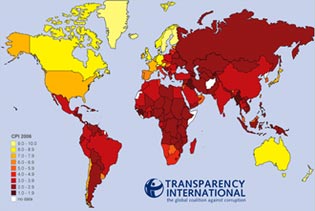
In her
speech to the Royal United Services Institute, Margaret Beckett (the British Foreign Secretary) has joined her New Labour colleagues in calling upon British Muslims to lead the fight against Islamic extremism. The speech followed the well worn path of:
“We know most Muslims despise these extremists, but it would be nice if they could actually tell us when they hear about a terrorist plot.” Most notably, she’s called upon them to spread the good word about life in Britain when they travel abroad to Islamic countries. Presumably in the hope that some deranged Islamist will abandon his plan to attack Britain after hearing from his brother’s friend’s aunt that really we’re not so bad.
When it comes to the Muslim community, New Labour is really trying to have its cake and eat it: repeatedly stating that we’re all in this together, then singling out Muslims as a special case. Muslims must do more to tackle extremism, we’re told. So does that mean the rest of us can carry on as we are? Yes, one of the biggest threats we face is from Muslim extremists, but there are better ways of getting the message across. Less divisive ways.
It’s the responsibility of everyone to deal with extremists - be they political, religious, or nationalists – including, as they’re part of British society, Muslims. Whether we like it or not, we
are all in this together. It’s not just Muslims who come into contact with extremists, and it’s not just non-Muslims who are affected by their actions.
The debate about extremism, and how best we can deal with it, is part of a much larger debate about citizenship: What does it mean to be a British citizen. While we’ve had numerous speeches about the British “way of life”, Ministers have continually ignored the most fundamental requirement of an inclusive and democratic society: a set of rights guaranteed to every citizen. Such a
democratic ‘Bill of Rights’ (unlike the one we
already possess) would firmly emphasise that those it applied to were full British citizens, and provide a means of addressing grievances, should anyone feel they’ve been treated unfairly or singled out.
While talk of citizenship remains abstract it remains too elusive. We need something concrete. Maybe then we’ll be in a position to argue over how best we can tackle those who mean us harm.















